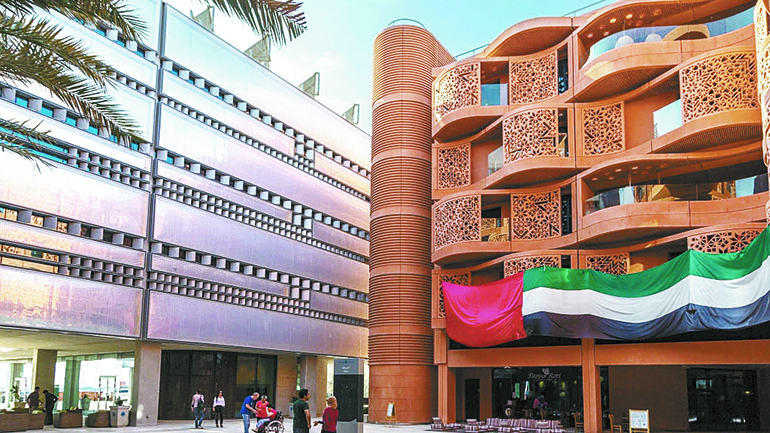
Latest News
- Hyundai E&C Accelerates Global Nuclear Expansion into the U.S. Nuclear Market
- Hyundai E&C Shifts into High Gear to Enter Nordic Large-Scale Nuclear Market
- Hyundai E&C Strengthens Korea-Japan Cooperation in Energy Transition and New Growth Businesses
- Hyundai E&C Signals Green Light for Large-Scale Nuclear Power Plant Business in Europe
- Hyundai E&C Unveils Energy-driven Growth Strategy “H-Road”
[ESG Column] Talking about “Zero-Carbon” Smart City
.jpg)
The world is now engaged in a "Zero-Carbon Smart City " race. Korea is dreaming of a rosy future of smart cities armed with cutting-edge technology. Let’s have a look at the real competitiveness of zero-carbon cities that have been never imagined before.
Noting Foreign Countries’ Efforts to Build Eco-Friendly Cities

[ Smart City “Masdar” in United Arab Emirates Embodying Zero-Carbon City from Conception, Source: Masdar City official website (masdarcity.ae) ]
Can smart cities ensure sustainable ecology that we envision?
The case of Sweden, where carbon neutrality policy is 50 years ahead of Korea, provides a lot of implications. Sweden has established a specific implementation plans and goals for carbon neutrality in 22 sectors by establishing a roadmap for carbon neutrality. Among others, in the civil engineering sector, which accounts for one-fifth of the climate impact, 26 action plans have been finalized to realize a 50% reduction in carbon emissions by 2030 to achieve net zero emissions by 2045. As a result, it was decided to take necessary measures to boost the reuse rate of excavation materials and construction and demolition materials and visualize carbon emissions at each construction stage. Achieving carbon neutrality in existing cities is also managed at an micro-level. According to an official from the Swedish Trade Representative in Korea, carbon emissions of each structure (buildings, roads, bridges, parks, etc.) in the city are being measured and implemented according to specific standards.
Gothenburg city in Sweden, which began urban redevelopment in the mid-2010s, collaborated with an automaker to transform existing diesel-powered trucks and buses into electric vehicles. This contributed to more environmentally friendly construction such as improving air quality and reducing noise. A smart city Masdar in Abu Dhabi, the United Arab Emirates, has used eco-friendly materials such as low-carbon cement and recycled aluminum as much as possible since the city’s conception. On top of that, it is drawing attention as best practice case for smart city which has achieved near-complete carbon neutrality by building large solar and photovoltaic power plants and banning internal combustion engine cars from entering the city.
Public-Private-Academic Social Solidarity As “Three Wheels” Underpinning Carbon Neutrality

[ Sweden has established a Carbon Neutrality Roadmap across 22 sectors and developed specific action plans, putting them into practical application, Source: Sweden’s Carbon Neutrality Roadmap website (knewdeal.go.kr) ]
Unfortunately, Korea is currently at a dreaming stage when comparing its efforts to those made by foreign countries. The deadline for the end of landfill in the Seoul metropolitan area (2025), which is used by 26 million people in Seoul, Incheon, and Gyeonggi Province, is only three years away, but discussions on ways to reduce and recycle waste have yet to begin. Current technology can dramatically boost the recycling rate of construction waste, which is only about 10 %, however, it is impossible to solely rely on the good faith of companies for a business that costs a lot of money.
Against this backdrop, it is good news that Hyundai E&C focuses its capabilities on responding to climate change as part of ESG management. The company launched a sustainable management consultative body in October 2020 and started eco-friendly management across the entire process of operating its businesses, which is expected to be a main contributor for not only to accelerate the realization of a carbon neutral society but also to secure long-term corporate competitiveness. Hyundai E&C’s achievement of entering the CDP Korea Hall of Fame for four consecutive years (2018~2021), announced by the Korean Committee on Carbon Information Disclosure Project, a global environmental management certification agency, is a reward that the company truly deserves.
Written by Gil-yong, You (Reporter of Monthly Joongang)

